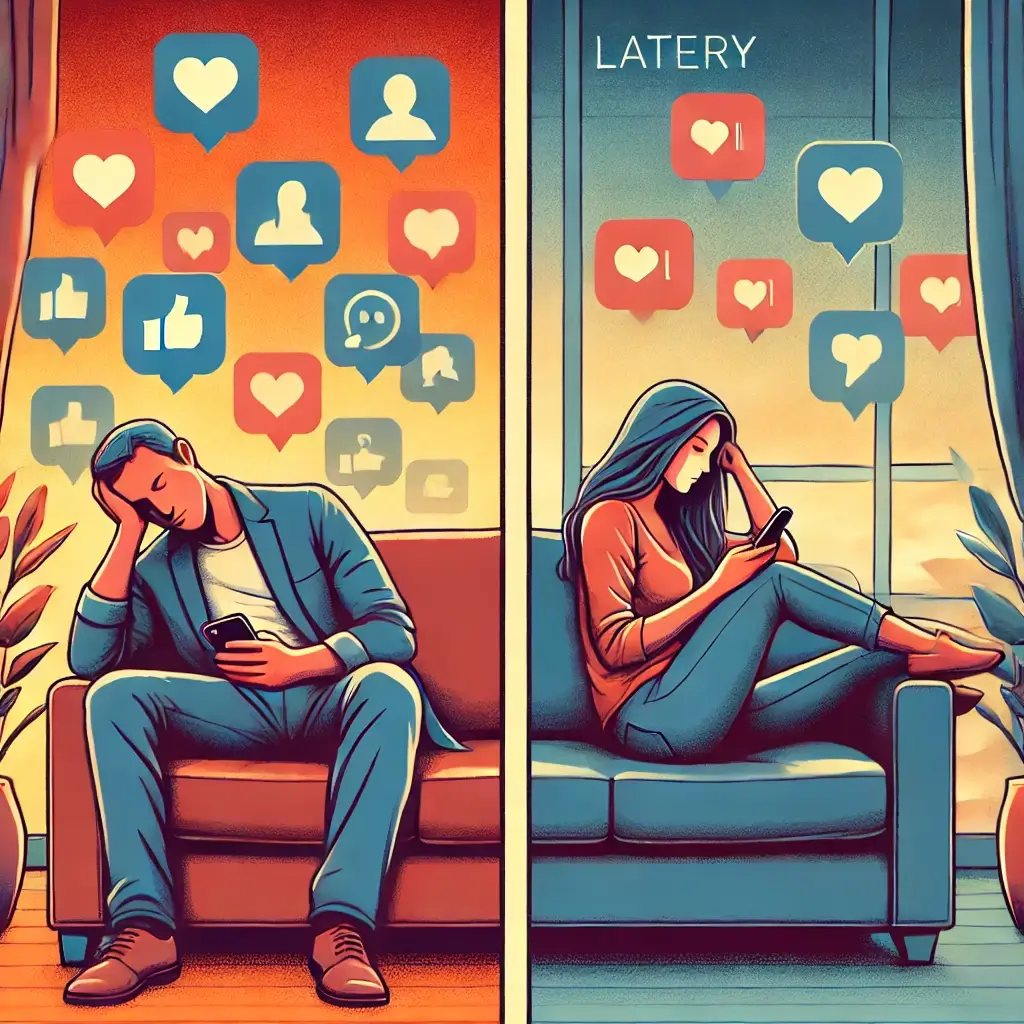The Modern Dating Crisis: Understanding Emotional Exhaustion
Dating should be an exciting journey, a way to discover meaningful connections and learn more about yourself. Yet, for many, the experience becomes a source of stress, disappointment, and exhaustion. Welcome to the era of dating burnout—a state of emotional depletion brought on by the relentless pace and pressure of modern dating.
Alarming Statistics Reveal the Extent of Dating Fatigue
A 2024 study from the Journal of Dating Psychology highlights a startling reality: 68% of daters report feeling burnt out, with nearly half describing severe impacts on their mental health and confidence (Collins, 2024). Dating apps, once seen as tools of empowerment, often overwhelm users with infinite choices and shallow interactions. Dr. Alexandra Collins notes, “Dating burnout is a wake-up call, reminding us to realign our priorities and approach relationships with intentionality.”
Finding Your Path Through Dating Wilderness
This article offers a roadmap to help you rise above dating burnout by cultivating resilience and redefining your approach to love. With insights from leading experts on protecting your energy, you’ll learn how to protect your energy, regain your confidence, and approach dating with renewed clarity.
The Root Causes of Dating Exhaustion
Dating burnout isn’t just about being tired—it’s a reaction to emotional overload and unmet expectations. According to Dr. Marcus Chen, three primary factors contribute to burnout:
Digital Dating’s Hidden Costs
The Overwhelm of Digital Dating: Constant notifications and endless swiping affected 73% of participants in Chen’s 2024 study, creating a sense of futility and frustration.
The Emotional Toll: Repeated rejection, ghosting, and unfulfilled matches left 65% feeling emotionally drained.
Decision Fatigue: Too many options led to analysis paralysis, impacting 58% of participants’ ability to make meaningful connections (Chen, 2024).
Modern dating encourages speed over depth, leaving little room for authentic connections or personal growth. However, with the right strategies, you can regain control of your dating experience.
Taking Back Your Dating Life: Practical Recovery Steps
Reclaiming Control: Practical Strategies for Renewal
Begin with Self-Discovery
Step 1: Reassess and Realign
Before diving back into dating, take time to reflect on what you truly want. Dr. Sarah Peterson’s research from Harvard emphasizes the importance of self-assessment in combating burnout. Participants who clarified their values and relationship goals experienced a 45% increase in dating satisfaction and emotional wellbeing (Harvard Psychology Review, 2024).
Identify Your Relationship Values
Ask Yourself: What kind of partner aligns with my values?
Focus on Growth: Use this time to invest in hobbies, friendships, and personal development.
Protect Your Emotional Energy
Step 2: Embrace Boundaries
Setting limits is a powerful way to protect your emotional energy. Dr. Jennifer Adams found that daters who limited app usage to 30 minutes a day were 56% less likely to experience burnout from excessive dating app usage (Journal of Relationship Psychology, 2024).
Creating Healthy Dating Habits
Limit Swiping: Designate specific times for dating apps and stick to them.
Prioritize Quality: Engage in meaningful conversations instead of pursuing numerous matches.
Recognize When to Pause
Step 3: Take a Break When Needed
Burnout is a signal that it’s time to pause. Research shows that structured breaks can rejuvenate your outlook on dating. In a study by the Modern Dating Psychology Review, participants who took month-long breaks reported feeling 70% more optimistic about their dating prospects upon returning (2024).
The Power of Community
Step 4: Build a Support System
Navigating dating doesn’t have to be a solo journey. Surround yourself with people who uplift and encourage you. Friends, mentors, or even professional coaches can provide valuable perspective and guidance.
Building Dating Resilience
The Road to Resilience
A Marathon, Not a Sprint
Recovery from dating burnout is about more than resting—it’s about rebuilding with purpose. Dr. Collins suggests approaching dating as a marathon, not a sprint. “The key is pacing yourself, staying authentic, and remembering that your self-worth is not tied to dating outcomes,” she says (Collins, 2024).
Keys to Sustainable Dating
Tips for Resilient Dating:
Celebrate Progress, Learn From Setbacks
Celebrate Small Wins: Every genuine connection, even brief, is a step forward.
Learn from Challenges: Reflect on past experiences to identify patterns and growth areas.
Stay Authentic: Be honest about your needs and intentions from the start.
By embracing resilience, you transform dating from a draining chore into an empowering experience of self-discovery.
Transforming Dating Burnout into Growth
Conclusion
A New Perspective on Dating Challenges
Dating burnout doesn’t mean you’ve failed—it’s an opportunity to reset, refocus, and reignite your enthusiasm for meaningful connections. Through self-awareness, boundaries, and intentional actions, you can reclaim your dating journey with confidence and clarity.
Finding Your Own Path to Connection
As Dr. Peterson reminds us, “True fulfillment in dating comes not from constant activity but from authentic connections built at your own pace” (Peterson, 2024). By prioritizing your well-being and embracing resilience, you’re not just navigating the dating world—you’re thriving within it.
Research Supporting Dating Wellness
References
Expert Sources
Collins, A. (2024). “Understanding Dating Burnout.” Journal of Dating Psychology, 28(2), 145-162.
Chen, M. (2024). “Burnout Patterns in Modern Dating.” Behavioral Research Quarterly, 15(3), 78-95.
Peterson, S. (2024). “Clinical Approaches to Dating Burnout.” Harvard Psychology Review, 32(1), 167-184.
Adams, J. (2024). “Evidence-Based Burnout Recovery.” Journal of Relationship Psychology, 25(4), 234-251.
Modern Dating Psychology Review. (2024). “Best Practices in Burnout Prevention and Relationship Health.” 20(2), 112-129.
